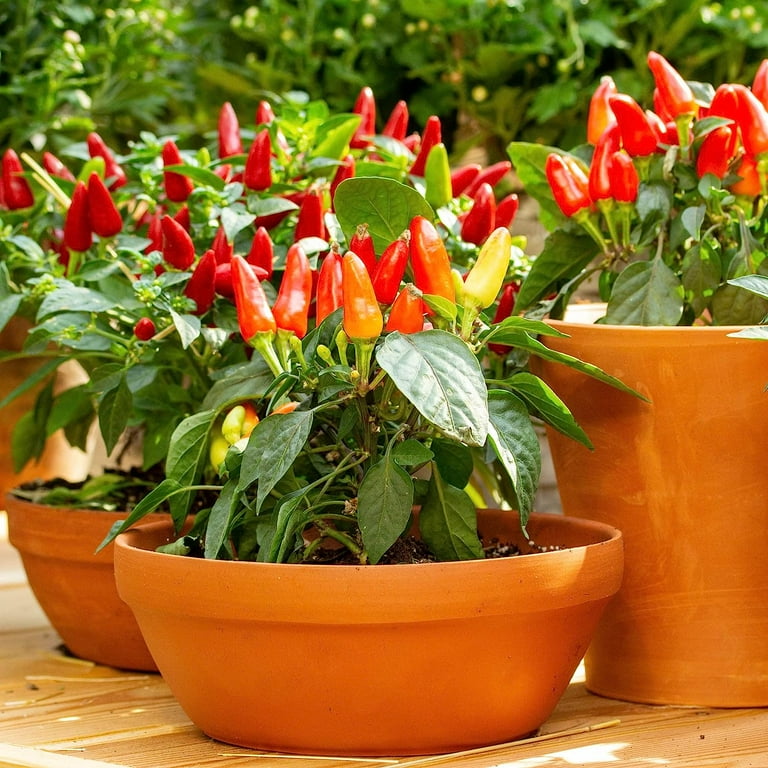Selecting the Best Fertilizers for Peppers: Specialist Recommendations
Selecting the Best Fertilizers for Peppers: Specialist Recommendations
Blog Article
Organic Vs. Synthetic Fertilizers: Which Is Best for Supporting Healthy Pepper Plants?
In the realm of nurturing healthy and balanced pepper plants, the selection in between organic and synthetic fertilizers stands as a critical decision with far-ranging effects. While both options goal to offer important nutrients to support plant development, the subtleties of their effect on the dirt, plant wellness, and the environment stimulate an argument that echoes throughout the gardening neighborhood. Understanding the unique advantages and potential challenges of each fertilizer kind is essential for pepper farmers seeking to maximize their yields while maintaining an eco-conscious and sustainable strategy.
Benefits of Organic Plant Foods
Organic fertilizers offer an environmentally-friendly and sustainable technique to nourishing pepper plants, supplying important nutrients without making use of synthetic chemicals. These all-natural fertilizers are acquired from organic resources such as compost, manure, bone dish, and algae, advertising soil health and biodiversity. Unlike synthetic plant foods, organic alternatives release nutrients slowly, ensuring a consistent and balanced supply for pepper plants to prosper.
One significant benefit of natural plant foods is their capability to boost dirt structure and water retention. By improving dirt health, organic plant foods advertise useful microbial task, which aids in nutrient uptake by pepper plants. Furthermore, natural plant foods reduce the risk of chemical run-off, safeguarding water sources from air pollution and safeguarding the setting.
In addition, natural plant foods contribute to long-lasting soil fertility by advertising the development of beneficial soil microorganisms. These organisms help break down raw material, releasing nutrients in a kind that is quickly available to pepper plants. best fertilizers for peppers. By promoting a healthy soil environment, natural fertilizers sustain sustainable pepper cultivation techniques that profit both plants and the environment
Disadvantages of Artificial Plant Foods
Synthetic plant foods, in comparison to their natural equivalents, present different drawbacks when utilized to nurture pepper plants, affecting both plant health and wellness and ecological sustainability. One significant disadvantage of artificial fertilizers is their propensity to leach nutrients from the soil quickly.
Furthermore, the overuse of synthetic fertilizers can add to water contamination. Excess fertilizers not absorbed by plants can wash away into water bodies, causing eutrophication, where algae blooms diminish oxygen levels in the water, hurting aquatic life. Synthetic plant foods are commonly acquired from non-renewable resources, such as fossil fuels, adding to carbon discharges and environmental degradation throughout their production.
Nutrient Absorption Comparison
Effective nutrient absorption plays a critical duty in the total health and development of pepper plants. When comparing organic and artificial fertilizers in regards to nutrient absorption, organic fertilizers have the advantage of providing a much more balanced and slow-release resource of nutrients (best fertilizers for peppers). Organic fertilizers contain a variety of macro and trace elements that are not only beneficial for the plants but likewise promote healthy dirt microbial task, which aids in nutrient uptake. On the various other hand, artificial go to this web-site plant foods commonly supply a quick release of nutrients, which can bring about seeping and runoff, leading to reduced nutrient absorption rates by the plants.
Furthermore, organic fertilizers boost soil framework and water retention capability, enabling pepper plants to accessibility nutrients a lot more successfully. This better soil quality assists in origin advancement, making it possible for better nutrient absorption. Synthetic fertilizers, although at first improving plant growth due to their high nutrient concentrations, might impede lasting nutrient absorption by derogatory dirt health with time.
Ecological Effect Considerations

On the other hand, synthetic plant foods, although frequently more focused and promptly available to plants, can have detrimental effects on the atmosphere if not applied effectively (best fertilizers for peppers). Their manufacturing calls for high energy inputs, leading to greenhouse gas emissions and adding to environment change. Moreover, the overflow of excess artificial fertilizers can contaminate water sources, causing eutrophication and damaging aquatic ecosystems.
Best Fertilizer Practices for Peppers
When fertilizing pepper plants, optimizing nutrient uptake and lessening ecological impact are key considerations. To attain this, it is vital to adhere to finest fertilizer techniques customized to the specific needs of pepper plants. One crucial practice is to execute a dirt examination before using any type of fertilizers. This examination can identify the pH degree of the dirt and determine any kind of nutrient shortages, leading you in picking the most appropriate plant food solution.
An additional vital technique is to feed pepper plants at the ideal time. Normally, peppers gain from receiving plant food at growing and after that once again when they start to blossom. Over-fertilizing can cause nutrition discrepancies and harm the plants, so it is vital to adhere to suggested application rates.
In addition, selecting a well balanced fertilizer with an NPK proportion that suits pepper plants' needs is essential. Ultimately, integrating natural and synthetic plant foods judiciously can assist support healthy pepper plants while lessening environmental effect.
Conclusion

Organic plant foods provide a lasting and environmentally-friendly approach to nourishing pepper plants, supplying important nutrients without the usage of artificial chemicals. Unlike synthetic fertilizers, natural alternatives release nutrients slowly, making sure a well balanced and constant supply for pepper plants to thrive.
Synthetic plant foods, in comparison to their natural counterparts, position different negative aspects when used to nourish pepper plants, affecting both plant health and wellness and ecological sustainability. When contrasting synthetic and organic plant foods in terms of nutrient absorption, organic fertilizers have the benefit of giving an extra balanced and slow-release source of nutrients.Moreover, natural plant foods improve dirt framework and water retention ability, permitting pepper plants to access nutrients much more effectively.
Report this page